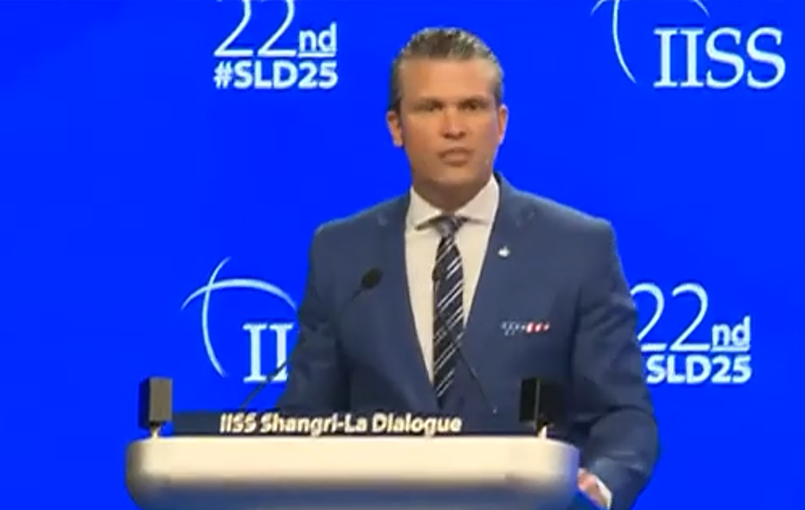SINGAPORE – At the 22nd Shangri-La Dialogue in Singapore on May 31, U.S. Secretary of Defense Pete Hegseth issued a stark warning to Indo-Pacific allies, urging them to significantly increase their defence spending to 5% of GDP—mirroring commitments made by European NATO members. Hegseth emphasized the “imminent” threat posed by China’s military ambitions, particularly concerning Taiwan, and underscored the necessity for regional partners to bolster their own defence capabilities.
Rising Tensions and the Call for Increased Defence Spending
Hegseth highlighted intelligence indicating that the People’s Liberation Army (PLA) is actively preparing for a potential invasion of Taiwan by 2027, citing recent military drills and fortifications as evidence of China’s aggressive posture. He argued that the Indo-Pacific faces a more formidable threat than Europe, making it imperative for Asian allies to elevate their defence budgets accordingly. “How can it make sense for countries in Europe to do that while key allies and partners in Asia spend far less in the face of a far more formidable threat from communist China, not to mention North Korea?” Hegseth questioned.
Emphasis on Regional Self-Reliance and U.S. Support
While reaffirming America’s commitment to the Indo-Pacific, Hegseth stressed the importance of regional self-reliance. He advocated for a strategic division of responsibilities, suggesting that Europe focus on its own continent’s defence, thereby allowing the U.S. to pivot more resources to Asia. This approach aims to strengthen deterrence without imposing U.S. ideology, aligning with President Trump’s “common sense” foreign policy that prioritizes sovereignty and commerce over interventionism.
Mixed Reactions and Ongoing Debates
Hegseth’s remarks received a mixed response. European officials appreciated the acknowledgment of their increased defence efforts but expressed concerns over the suggested strategic division. U.S. Senator Tammy Duckworth criticized the approach as patronizing, emphasizing the need for collaborative security efforts.
Australian Defence Minister Richard Marles welcomed the U.S.’s commitment to the Indo-Pacific, highlighting Australia’s own record peacetime defence spending increase and the importance of the AUKUS partnership.
Taking greater responsibility
As geopolitical tensions escalate, particularly regarding Taiwan, the U.S. is urging its Indo-Pacific allies to take greater responsibility for their own defence. By advocating for increased defence spending and regional self-reliance, the U.S. aims to create a more balanced and robust deterrent against potential aggression from China and North Korea. The effectiveness of this strategy will depend on the willingness of Asian nations to adjust their defence policies in alignment with these recommendations. (zai)
Photo: US Defence Secretary Pete Hegseth

